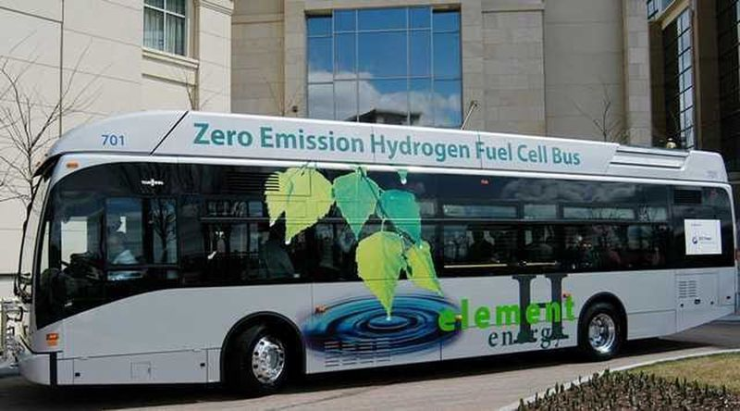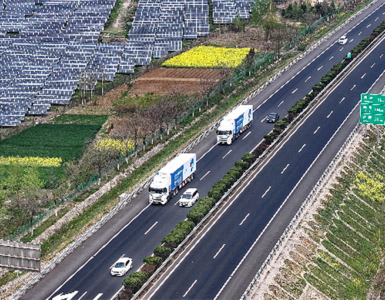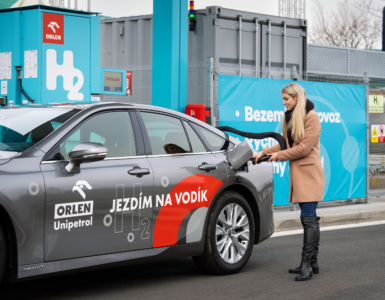Hydrogen could be critical fuel for trucks, ferries and freighters in Michigan.
Hydrogen produced from clean energy might become the best future fuel for various types of trucks, long-range ferries, and even freighters on the Great Lakes.
Researchers at the University of Michigan studied hydrogen’s potential role in the clean-energy transition away from fossil fuels, exploring ways the planet’s lightest element could power heavy-duty trucking and shipping. The best hydrogen-fuel potential in Michigan’s future is in the transportation sector, specifically medium- and heavy-duty trucks on interstate highways, the study found.
The scientists wrote a Michigan hydrogen roadmap report to conclude the project. This comes as Michigan recently joined six other Midwestern states teaming up to accelerate the development of hydrogen as a clean energy source.
🔥 What about we co-host a webinar? Let's educate, captivate, and convert the hydrogen economy!
Hydrogen Central is the global go-to online magazine for the hydrogen economy, we can help you host impactful webinars that become a global reference on your topic and are an evergreen source of leads. Click here to request more details
Gretchen Whitmer, Michigan Gov. said:
The Midwest will continue leading the future of mobility and energy innovation and has enormous potential for transformative hydrogen investments.
Hydrogen is a colorless, odorless, flammable gas that already powers some cars, trucks, buses, and trains. But a shortage of fueling stations limits hydrogen’s appeal.
The U.S. Department of Energy just announced a $7 billion program to fund regional clean hydrogen hubs – called “H2 hubs” – across the country as part of the federal bipartisan infrastructure law. The hubs would expectedly ramp up clean hydrogen production and distribution.
The Michigan hydrogen roadmap is meant to help guide the state’s response to the federal funding opportunity as part of the state’s new climate action plan, said the study’s lead author Greg Keoleian, director of the Center for Sustainable Systems at U-M’s School for Environment and Sustainability.
Some environmentalists are skeptical of hydrogen fuel because most commercially produced hydrogen in the United States comes from natural gas, which emits greenhouse pollutants carbon dioxide and methane that contribute to global warming.
But hydrogen can be derived using electric currents from wind, solar, or nuclear sources that produce few if any emissions contributing to climate change. Such “clean hydrogen” releases only water as a byproduct when used in a fuel cell.
The new Midwestern hydrogen partnership includes Illinois, Indiana, Kentucky, Michigan, Minnesota, Ohio, and Wisconsin, and will focus on boosting development, markets, supply chains, and a workforce for clean hydrogen, according to a joint statement.
Most of the near-future end uses for hydrogen-fuel cells involve the transportation industry.
Many types of highway trucking vehicles aren’t suitable for typical electric-vehicle batteries but could be powered with hydrogen-fuel cells. That would both help the transition away from fossil fuels and advance environmental justice goals, U-M researchers said.
Greg Keoleian, director of the Center for Sustainable Systems at U-M’s School for Environment and Sustainability, said:
Because they produce no tailpipe emissions, fuel-cell EVs that replace diesel trucks can be particularly beneficial to communities near highways — improving local air quality and providing health benefits.
But Michigan has potential to use hydrogen fuel beyond its highways.
Researchers determined another potential near-term use for hydrogen fuel is long-range passenger ferries on the Great Lakes, like those that carry visitors across Lake Superior to Isle Royale and the ferry that crosses Lake Michigan between Ludington, Michigan, and Manitowoc, Wisconsin.
Their report also recommended continued efforts to develop hydrogen fuel for Great Lakes freighters, as well as passenger and freight trains on the Chicago to Detroit and Port Huron routes.
Zachary Kolodin, Michigan’s chief infrastructure officer, said the report from U-M illustrates the enormous potential for hydrogen investment in Michigan.
The report includes a series of maps that identify infrastructure that could be part of a Michigan hydrogen fuel system, including highlighted industrial facilities and transportation corridors as possible spots for hydrogen end-use infrastructure.
READ the latest news shaping the hydrogen market at Hydrogen Central
Hydrogen could be critical fuel for trucks, ferries and freighters in Michigan, ANN ARBOR, MICH., September 27, 2022








